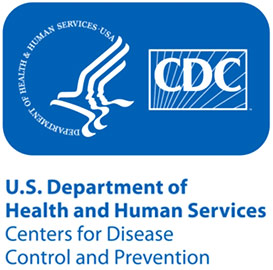VACCINE INFORMATION STATEMENT
Hepatitis A Vaccine
How can I protect myself against hepatitis A?
The best way to prevent hepatitis A is through vaccination with the hepatitis A vaccine. To get the full benefit of the hepatitis A vaccine, more than one shot is needed. The number and timing of these shots depends on the type of vaccine you are given. Practicing good hand hygiene — including thoroughly washing hands after using the bathroom, changing diapers, and before preparing or eating food — plays an important role in preventing the spread of hepatitis A.
Who should get vaccinated against hepatitis A?
The following people should be vaccinated against hepatitis A:
Children
- All children aged 12–23 months
- All children and adolescents 2–18 years of age who have not previously received hepatitis A vaccine (known as “catch up” vaccination)
People at increased risk for hepatitis A
People at increased risk for severe disease from hepatitis A infection
Other people recommended for vaccination
- Pregnant women at risk for hepatitis A or risk for severe outcome from hepatitis A infection
- Any person who requests vaccination
How is the hepatitis A vaccine given?
There are two types of hepatitis A vaccine. The first type, the single-dose hepatitis A vaccine, is given as two shots, 6 months apart, and both shots are needed for long-term protection against hepatitis A. The other type is a combination vaccine that protects people against both hepatitis A and hepatitis B. The combination vaccine can be given to anyone 18 years of age and older and is given as three shots over 6 months. All three shots are needed for long-term protection for both hepatitis A and hepatitis B.
Is the hepatitis A vaccine effective?
Yes, both types of hepatitis A vaccine are highly effective in preventing hepatitis A virus infection. Receiving the entire vaccine series (all of the required shots) results in long-term protection.
Is the hepatitis A vaccine safe?
Yes, the hepatitis A vaccine is safe. No serious side effects have been reported from the hepatitis A vaccine. Soreness at the injection site is the most common side effect reported. As with any medicine, there is always a small risk that a serious problem could occur after someone gets the vaccine. However, the potential risks of hepatitis A are much greater than the potential risks associated with the hepatitis A vaccine. Millions of doses of hepatitis A vaccine have been given in the United States and worldwide since the first hepatitis A vaccine was licensed in 1995.
Who should not receive the hepatitis A vaccine?
People who have ever had a life-threatening allergic reaction to the hepatitis A vaccine or who are known to be allergic to any part of the hepatitis A vaccine should not receive the vaccine. Tell your doctor if you have any severe allergies. Also, the vaccine is not licensed for use in infants under age 1 year.
What is immune globulin?
Immune globulin is a substance made from human blood plasma that contains antibodies, which are the body’s natural defense against infection. Injections of immune globulin may be given under certain circumstances, like when someone is too young to get vaccinated or can’t get vaccinated because of a previous, life-threatening reaction to the hepatitis A vaccine or vaccine component. Unlike the hepatitis A vaccine, immune globulin does not provide long-term protection against infection.
Will the hepatitis A vaccine protect me from other forms of hepatitis?
No. The hepatitis A vaccine only protects against hepatitis A. There is a separate vaccine available for hepatitis B. There is also a combination hepatitis A and hepatitis B vaccine that offers protection for both viruses. There is no vaccine for hepatitis C at this time.
Can hepatitis A vaccine be given to people with compromised immune systems, such as hemodialysis patients or people with HIV/AIDS?
Yes. The hepatitis A vaccine can be given to people with compromised immune systems.
Is it harmful to have an extra dose of hepatitis A vaccine or to repeat the entire hepatitis A vaccine series?
No, getting extra doses of hepatitis A vaccine is not harmful.
What should be done if the last dose of hepatitis A vaccine is delayed?
If the second dose has been delayed (more than 6 months since the first dose was given), it should be given as soon as possible. The first dose does not need to be given again.
Where can I get the hepatitis A vaccine?
Medical Arts Pharmacy offers hepatitis A & B vaccinations. Please contact either our Fayetteville or Elkins location for further information.

